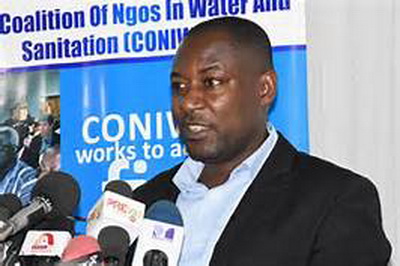
Environmental service providers send SOS message to government
Two main stakeholders in the environment and waste management sector say many private waste management companies risk collapsing due to the lack of support from the government.
The Environmental Services Providers Association (ESPA), whose members manage about 80 per cent of waste, and the Ghana Coalition of NGOs in Water and Sanitation Sector (CONIWAS), mentioned some of the challenges facing them to include the lack of landfill facilities and the inability of the government to pay debts owed them for services delivered.
Addressing a press conference in Accra, the spokesperson for the group, Mr Atta Arhin, who is also the Vice Chair of CONIWAS, said the government owed the group more than GH¢40 million for services provided.
He said a review of the current sanitation challenges and the national waste management systems suggested that it would be challenging to achieve the President's vision of making Accra the cleanest city in Africa by 2020.
They have, therefore, called for immediate review of waste management to help improve and revert the worsening sanitation situation in the country.
Mr Arhin said the press conference formed part of scheduled media dialogue series aimed at facilitating public education and sensitisation on sanitation issues as part of contribution to address the national sanitation challenges.
“Currently, the landfill operators are owed GH¢42 million by the government. The inability to pay may force the operators to withdraw their services due to inability to service equipment required for managing the landfill and to pay workers,” he said.
He said the amount covered services provided to the MMDAs and management of landfill sites from January 2016 to date.
He added that current landfill sites were almost exhausted and that “the risk of going beyond 20 metres in height might be fatal due to unstable slopes and outbreak of diseases.”
Urgent payment
Mr Arhin said the two entities wanted the government to pay urgently to facilitate efficient waste management or they might be forced to withdraw their services.
Describing the current sanitation challenges as a public health threat and emergency, the group said all the well-drafted laws and guidelines that had the potential to address the sanitation challenges, if well implemented, were yet to make any meaningful impact.
As a result, they called for interventions such as the expansion of sanitation infrastructure and institution of pragmatic public-private-partnerships that would create the enabling environment for the private sector to continue providing their support.
“We recommend that the government revisits the fee fixing arrangement to ensure patrons of our services paid realistic fees so we no more make losses,” he said.
Mr Arhin said the current fees for refuse collection which ranged between GH¢20 and GH¢50 per household did not make them to break even to sustain their operations, leading to some of their members folding up, with risks for more to go down.
While commending the government’s decision to establish a national Sanitation Authority with a National Sanitation Fund, they asked for action to be expedited on delivery with the optimism that such institutions would be a game changer in the sanitation management.
Loss
Mr Arhin said the World Bank estimated that the country lost close to GH¢1.5 billion, equivalent to $290 million annually, as a result of poor sanitation and the menace of open defecation.
He said a World Health Organisation (WHO) report also indicated that additionally, poor sanitation and hygiene resulted in about 19,000 mortalities yearly as six out of every 10 diseases in Ghana were linked to poor environmental sanitation
Ghana, therefore, faced dire environmental sanitation challenges.
Writer’s email
